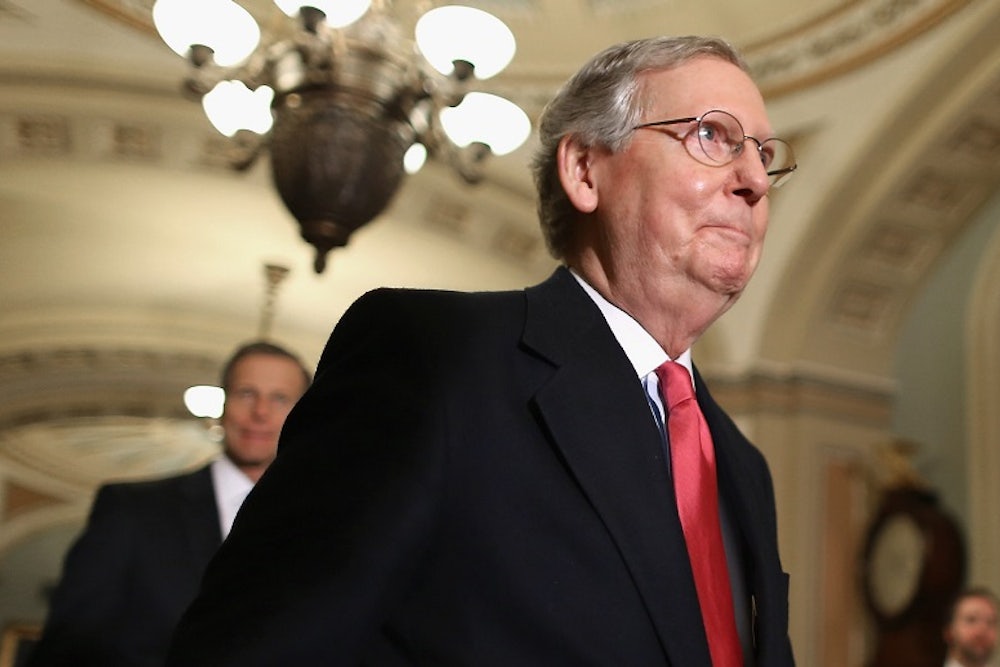If Republicans take back control of the Senate on Tuesday, don’t expect them to pass a lot of big pieces of legislation. The GOP has enough trouble agreeing among themselves on issues like immigration or tax reform. And even Republicans manage to agree on legislation, Senate Democrats can kill it with the filibuster. In other words, it’s mostly going to be small-ball bills that reach the president’s desk.
Nonetheless, those bills can have important consequences for the country. Here are a few economic issues that could see action in the 114th Congress:
1. Trade
President Barack Obama has been trying to complete two major trade deals—one in Asia and one in Europe—but has been stymied by Majority Leader Harry Reid. Reid has refused to allow a vote on fast track trade authority, which would limit the Senate to an up-or-down vote on any trade agreements (not votes on individual sections of those agreements). Without that trade authority, the Obama administration has a very difficult time negotiating deals because other countries know that the Senate has the power to blow up the deal over the smallest objection.
Liberals are very suspicious of these trade agreements, which are negotiated in secret and are often sources of big corporate giveaways, particularly on intellectual property law. That’s why Reid has refused to give Obama fast track trade authority, even though it likely would pass the Senate. That would change with Mitch McConnell as majority leader. He would side with the president and end Reid’s obstruction.
2. Earned Income Tax Credit (EITC)
Democrats and Republicans both broadly agree on expanding the EITC for childless workers. On the Democratic side, Obama and Senator Patty Murray have both authored plans to expand the tax credit. Among Republicans, Senator Marco Rubio and Representative Paul Ryan have both proposed doing so as well. The question is how to pay for it—the two parties are far apart. But if Republicans want to prove they can govern, expanding the EITC is a logical place to start.
3. Unemployment Insurance
After blocking the legislation all year, Republicans won't suddenly agree to renew long-term unemployment benefits. But there are other, smaller reforms that the parties could agree upon. Michael Strain, of the American Enterprise Institute, has proposed giving workers a cash bonus once they find employment or making the benefits lump sum, instead of weekly. Strain has also suggested offering the unemployed relocation subsidies to move to locations where jobs are more available. These aren’t huge ideas and it’s difficult to predict whether a Republican Senate would support them, but as with the EITC, it’s an opportunity for the GOP to prove it is actually interested in governing.
4. Minimum Wage
Senate Republicans blocked legislation to raise the minimum wage earlier this year, so why would it stand a greater chance of passing if they retake the Senate? A few reasons: Democrats used the minimum wage to their political advantage throughout the midterms. If the GOP doesn’t agree to any increase in it by 2016, it will be a potent issue in the presidential election—one Republicans may want to avoid. A number of Republican senators in blue and purple states are up for election in 2016, giving them incentive to compromise as well.
